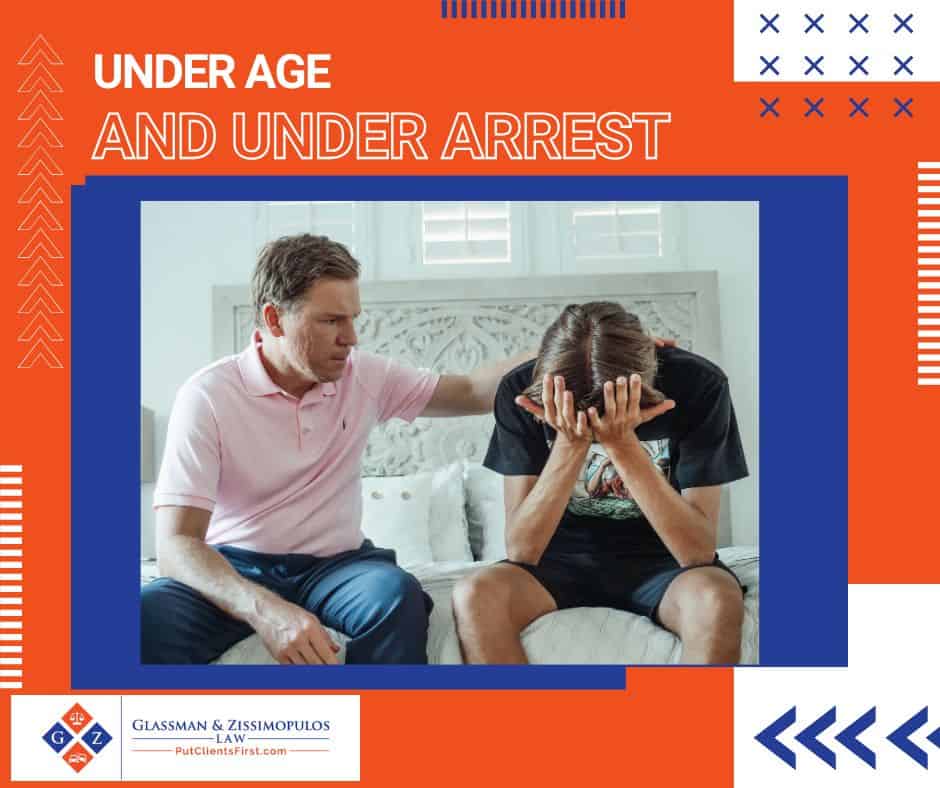For many Gainesville parents, the start of the school year brings mixed emotions: fresh schedules, new faces, and the unsettling possibility that your teen could make a mistake serious enough to result in criminal charges. If your high schooler is arrested, it’s essential to understand how juvenile charges differ from adult criminal charges and what steps you must take to protect their future.
1. Juvenile vs. Adult Charges: Key Legal Differences
Terminology matters. In Florida, if your child is under 18, they’re processed as an “alleged delinquent,” not a criminal defendant. If found responsible, the court adjudicates them delinquent, rather than convicting them of a crime.
Purpose of the system. Juvenile court seeks rehabilitation, not punishment. The adult system focuses on deterrence and incarceration.
Privacy protections. Juvenile proceedings and records are usually confidential and can be sealed, shielding your teen’s future prospects. An adult conviction, in contrast, becomes public record and can hinder college applications, job opportunities, and housing.
Proceedings differences. Juvenile hearings are less formal, evidence rules are more flexible, and parents are integral to the process. Adult court is adversarial, public, and follows stricter procedure.
2. When Might a Teen Be Charged as an Adult?
Florida allows, or in some cases requires, teens aged 14 or older, charged with serious offenses, such as violent felonies, to be tried as adults. This “direct file” can dramatically alter your teen’s trajectory:
- Mandatory transfer for serious violent felonies.
- Judicial discretion based on offense severity, maturity, and public safety.
If your teen is facing adult charges, expect public proceedings, potential prison sentences, and a permanent record. That’s why immediate legal guidance is critical.
3. What Parents Should Do: A Practical Guide
Step 1: Stay Calm, Respond Quickly
You must engage promptly but carefully. Stay informed and know the charge, court date, and specific allegations. Understand that parents are often required at juvenile hearings.
Step 2: Get Legal Counsel Immediately
Whether juvenile or adult court, a lawyer specializing in teen representation is essential. They can request diversion, negotiate plea agreements, challenge evidence, and work to keep your teen in the juvenile system.
Step 3: Ask About Diversion Programs
Low-level first offenses often qualify for diversion programs, which may involve counseling, community service, education, or victim mediation. When successfully completed, charges may be dismissed without adjudication.
Step 4: Understand Court Outcomes
Juvenile consequences are tailored to include probation, community programs, counseling, and sometimes short stays in secure facilities, such as the Alachua Regional Juvenile Detention Center, rather than adult jail.
Adult court penalties are far harsher, including permanent records, longer sentences, and limited opportunities for sealing or expungement.
4. School and Community Impacts
- School attendance: Depending on the offense, your teen may face disciplinary hearings, suspension, or expulsion. Schools in Alachua County must coordinate with juvenile justice authorities on return timing and support plans.
- Extra‑legal consequences: Juvenile court may impose academic or behavioral programs, community service, or even restrict driver’s license privileges.
- Parental responsibility: If your teen is truant or noncompliant with programs, Florida law may hold parents accountable, possibly via misdemeanor charges if you fail to ensure school attendance.
5. Protecting Your Teen’s Future
With school back in full swing with football games, clubs, and peer pressures, being proactive is crucial. Here’s how parents can stay ahead:
- Open communication: Talk frankly about rights, responsibilities, and potential consequences. Avoid lecturing, aim for understanding and guidance.
- Know your teen’s rights: Under In re Gault, teens have constitutional safeguards such as the right to counsel, to confront witnesses, and more, even in juvenile court.
- Document everything: Save school incident reports, communications, and any evidence. These can inform defense strategy.
- Monitor court proceedings: Attend hearings, stay in touch with defense counsel, and push for diversion or rehabilitation programs.
- Ask about sealing or expungement: Florida law allows many juvenile records to be sealed; adult convictions seldom can be expunged.

Final Word: Be Prepared, Be Supportive
Facing criminal charges can be overwhelming, especially for a teen. But with timely action, legal guidance, and focused effort, you can help steer your child toward rehabilitation, not punishment.
As your Gainesville criminal defense ally, we urge you to stay informed, stay present, and stay proactive this school year. Because when it comes to your teen’s future, both education and empathy are powerful tools.
Call Glassman and Zissimopulos and our team of dedicated attorneys today. (352) 505-4515 or Toll-Free at (844) 787-2543. When you call, you will be able to speak with a lawyer. This is our commitment to you.

